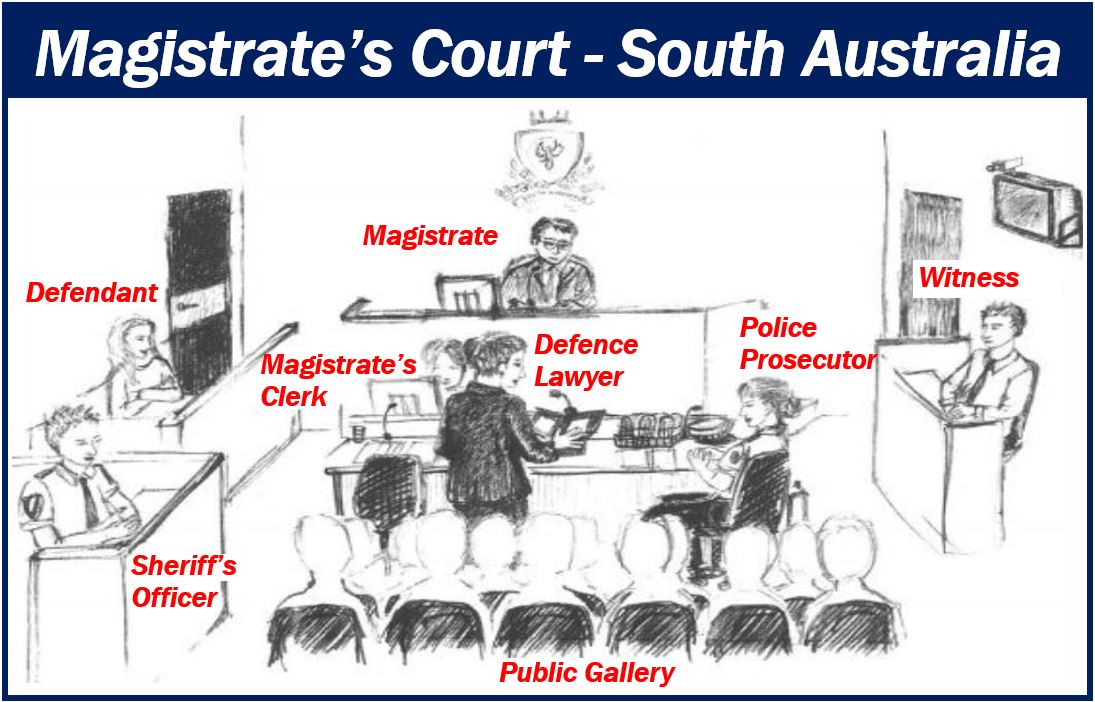
A magistrate is a civilian who administers law. The meaning of the term varies from country to country. In some countries, such as England and Wales a magistrate is a local judicial officer who sits in a Magistrate’s Court. In England and Wales, magistrates are volunteers without legal training.
During Roman times (ancient Rome), a magistratus was a very high-ranking government officer who had both executive and judicial powers.
In China, magistrates were responsible for administration over a particular region.
The Law Dictionary has these definitions of the term in the UK and USA:
“A public officer belonging to the civil organization of the state, and invested with powers and functions which may be either judicial, legislative, or executive.”
“But the term is commonly used in a narrower sense, designating, in England, a person entrusted with the commission of the peace, and, in America, one of the class of inferior judicial officers, such as justices of the peace and police justices.”
Etymology of magistrate
Etymology is the study of the origin of words. It is also the study of how word meanings and structures evolved over time.
The term ‘magistrate’ first appeared in the English language in the late fourteenth century. It meant “a civil officer in charge of administering laws.” It also meant “office or function of a magistrate.”
The term came from the Old French magistrat, and the Latin word magistratus, meaning “a public functinary, magistrate.” The word developed from the Latin word magister, meaning “chief director.”
During the late seventeenth century, the began to also mean “justice of the peace” or other minor legal officials having criminal jursdiction.
English common law tradition
England and Wales

Magistrates in the main courts of England and Wales are also referred to as Justices of the Peace or JPs.
They are volunteers who hear prosecutions for summary offences and some triable either-way offences. JPs cannot issue prison sentences longer than 12 months. There are several other limitations on the powers of magistrates. They can, however, issue warrants.
The British Government’s website says the following about magistrates:
“Magistrates are volunteers who hear cases in courts in their community. They can hear cases in the criminal court, the family court, or both.”
“Each case is usually heard by 3 magistrates, including a magistrate who is trained to act as a chairperson.”
“A legal adviser in the court gives advice on the law and makes sure the magistrates follow the right procedures.”
United States
Magistrates are much more common in Europe than in the US. However, the position exists in the federal courts and some state jurisdictions. Jurisdiction, in this context, refers to the power of a court or official to enforce laws in a geographical area.
According to Wikipedia, in the United States:
“The term ‘magistrate’ is often used (chiefly in judicial opinions) as a generic term for any independent judge who is capable of issuing warrants, reviewing arrests, etc. When used in this way, it does not denote a judge with a particular office. Instead, it denotes (somewhat circularly) a judge or judicial officer who is capable of hearing and deciding a particular matter.”
“That capability is defined by State statute or by common law. In Virginia, for example, the Constitution of 1971 created the office of magistrate to replace the use in cities and counties of the justice of the peace, which is common in many states for this function.”
Australia

In Australia, the Magistrate’s Court is the first level of the Courts system. It hears approximately ninety-five percent of court cases.
Most criminal cases in the Queensland Courts, for example, are heard in the Magistrates Court, as are most civil actions.
According to the Queensland Courts website:
“Unlike the Supreme and District Courts, Magistrates Courts have no jury. Therefore, the magistrate makes all decisions in criminal matters, including any penalty.”
“The magistrate also makes all decisions in civil matters, including an order that one side pay the other money or perform certain actions to rectify a problem.”
